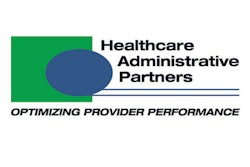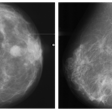
With the release of the final Medicare Physician Fee Schedule (MPFS) for 2018, we learned that application of the appropriate use criteria/clinical decision-support (AUC/CDS) requirement that was originally scheduled to begin in 2018 has been deferred until January 1, 2020.
Nonetheless, because AUC/CDS is embodied in the Protecting Access to Medicare Act (PAMA), the U.S. Centers for Medicare and Medicaid Services (CMS) has no choice but to implement it at some point. While radiologists can breathe a sigh of relief for the moment, setting up and testing their system should be an ongoing project over the coming years.
Requirement to consult AUC
The Medicare AUC/CDS regulation mandates that ordering providers consult appropriate use criteria when ordering advanced imaging examinations such as MR, CT, PET, and other nuclear medicine exams for Medicare patients. The burden of reporting the clinical decision-support system consultation is on the radiologist, whose payment will be denied in full when the ordering provider fails to use the system. The denial of payment will apply to both the professional and technical components of the Medicare reimbursement, whether the procedure is billed separately or globally.
There is no financial penalty for the ordering physician who does not consult and document the use of AUC. Radiologists will have to consider whether they will refuse Medicare referrals that are not accompanied by a qualified AUC consultation and develop a policy around such occurrences. Hospitals will be involved in developing and mandating the use of AUC/CDS systems along with radiologists, since their payment will also depend on compliance with the rule.
In the first year of the program (2020), radiologists will be paid in full whether or not the AUC/CDS information is reported on Medicare claims. CMS has indicated that it will evaluate whether an additional year of no penalty (2021) will be needed.
Exceptions from AUC consultation
There are exceptions to the requirement that an AUC consultation take place in order for the claim to be paid:
- The rule will apply for outpatient services whether performed in the hospital or in an imaging center. Inpatient services covered under Medicare Part A are not subject to the regulation.
- Services performed at a critical access hospital (CAH) are not subject to the regulation.
- Services ordered for an individual with an "emergency medical condition" do not require a consultation, regardless of the location where those services are performed:
- An emergency medical condition is defined as a medical condition manifesting itself by acute symptoms of sufficient severity (including severe pain) such that the absence of immediate medical attention could reasonably be expected to result in placing the health of the individual (or, with respect to a pregnant woman, the health of the woman or her unborn child) in serious jeopardy, serious impairment to bodily functions, or serious dysfunction of any bodily organ or part.
- In addition, with respect to a pregnant woman who is having contractions, the definition goes on to state "that there is inadequate time to effect a safe transfer to another hospital before delivery, or that transfer may pose a threat to the health or safety of the woman or the unborn child."
CDS mechanisms
The AUC consultation must take place using a qualified clinical decision-support mechanism (CDSM). A CDSM is defined as "an interactive, electronic tool for use by clinicians that communicates AUC information to the user and assists them in making the most appropriate treatment decision for a patient's specific clinical condition." The CDSM tool can be an integral part of an existing electronic health record system or it can be a standalone system, as long as it is certified by CMS as a qualified system.
The initial list of fully qualified CDSMs was published by CMS early in 2017, and another list contained those with preliminary qualification. CMS has posted the list of qualified CDSMs on its website. Practices designing and implementing their systems will want to be sure their CDSM becomes fully qualified by January 1, 2019, which currently is the deadline established by CMS for meeting all of the requirements.
Reporting AUC consultations
Radiologists will have to include certain information on their Medicare claim forms to let CMS know whether the consultation requirements have been fulfilled:
- Which qualified CDSM was consulted by the ordering professional
- Whether the service ordered would or would not adhere to specified applicable AUC, or whether the specified applicable AUC consulted was not applicable to the service ordered
- The national provider identifier (NPI) of the ordering professional who consulted the AUC (if different from the furnishing professional)
While CMS had initially proposed to implement this reporting requirement using a series of G-codes and modifiers, the most recent information in the 2018 MPFS is that a unique AUC identifier system will most likely be developed to allow CMS and the CDSMs to share data.
Integration with MIPS
Radiologists have an opportunity to integrate CDS into their Merit-Based Incentive Payment System (MIPS) activities. They might want to consider using the Radiology Support, Communication, and Alignment Network (R-SCAN) program offered by the American College of Radiology as one of their medium-weighted improvement activities. This has the added advantage of helping the practice prepare for the AUC/CDS requirement.
Ordering physicians will also have some incentive to begin using AUC if they are interested in maximizing their reimbursement under MIPS. There are two ways the Quality Payment Program rules will give MIPS credit to ordering professionals for consulting AUC using a qualified CDSM beginning in 2018:
- The "Patient Safety and Practice Assessment" subcategory of improvement activities includes AUC consultation as a high-weighted activity.
- A 10-point bonus in the Advancing Care Information (ACI) performance category can be obtained for reporting AUC consultation as an improvement activity.
Conclusion
While the requirement to submit AUC consultation information does not begin until January 1, 2020, the sooner radiologists and their hospitals implement an appropriate AUC/CDS system, the greater the compliance level of the ordering physician community when the time comes for payment denials. When choosing a system, be sure it is a currently qualified CDSM or one that will become qualified by January 1, 2019.
Rebecca Farrington serves as the chief revenue officer for Healthcare Administrative Partners. She has more than 20 years of experience in healthcare sales and management roles, focusing on hospital-based and physician revenue cycle management.
The comments and observations expressed herein are those of the author and do not necessarily reflect the opinions of AuntMinnie.com.



















